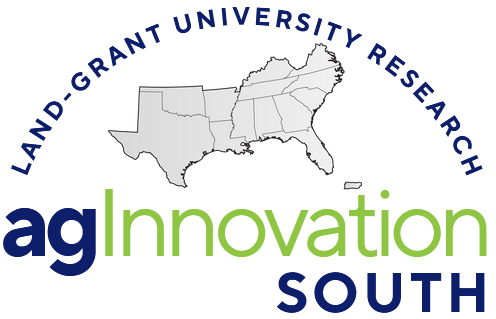
S1078: Cognitive Influence on Teaching, Learning, and Decision Making Around Critical Agricultural and Natural Resource Issues
(Multistate Research Project)
Status: Inactive/Terminating
Date of Annual Report: 01/09/2020
Report Information
Period the Report Covers: 01/01/2019 - 12/31/2019
Participants
JC Bunch (University of Florida), John Diaz (University of Florida), Dale Layfield (Clemson), Kim Dooley (Texas A and M) and Taylor Ruth (University of Nebraska)Brief Summary of Minutes
(1) Group introductions
Each of the attendees introduced themselves and summarized their current research efforts.
(2) Review purpose and objectives of the multi-state project,
JC Bunch went over the purpose and objectives of the project. Specifics can be found in the Hatch proposal, which you can access from NIMS or emailing JC. Overall, the purpose of the project is to promote educational decision support systems among diverse audiences. The project hopes to create a large dataset to compare how teaching and learning styles influences cognition and problem solving capacity.
(3) Discussion of current research and opportunities for collaboration
JC has already began collecting data for this project. His data is being collected in the CALS among participants of the teaching college. The teaching college prepares scientists to become teachers, so there are key competencies that are built that affect their problem-solving abilities. Some of the dataset is being published in an Extension journal in collaboration with one of his graduate students.
Taylor discussed the opportunity to evaluate the “media effect” and explore the influence of selected media exposure to climate change knowledge and behaviors.
Dooley discussed a current USDA project that would align with this project’s objectives and also includes the University of Florida. The project focuses on issues of climate change and food security. We plan on sending out research teams to areas impacted by Hurricane (using an instruction case study design) to look at patterns of cognition and resilience.
Taylor followed with interest of expanding this inquiry into Nebraska and exploring the same construct as it relates to flooding. Dooley and Taylor will follow up to continue this conversation off-line.
John’s research as it relates to cognition focuses on the role of culture as a mediating factor. John works as the chair of the Coalition of Florida Extension Educators for Latino Communities (CAFE Latino) and is currently working with a graduate student to design a study to understand how the cultural relevance and responsiveness of Extension programs leads to improved cognitive and behavioral outcomes. It also explores how developing cultural competencies among Extension educators increases their problem-solving skills among diverse audiences. His graduate student will use the Intercultural Development Inventory (IDI) to measure the development of these problem solving skills over time.
Dales shared his interest in exploring how to develop an Ag Technology inventory that measures the enhancement of relevant competencies over time to personal growth. There are educational requirements at Clemson that require completion of technology based classes but there is no way to understand the students’ growth. Dale mentioned the utility of measuring this construct as students are engaged with digital and traditional media development technologies.
Taylor followed up with interest from an Ag Communication context. She mentioned how problem solving skills are a collateral competency that is developed when learning such disciplines as videography. There would be an opportunity to measure how an individual’s development of Ag Communications competencies translates into problem solving skills.
Dooley added with a mention of a cultural discourse class requirement within her department that develop skills among their students around civil discourse. The skills that comes from this type of course may be translated to the objectives of university education programs, which centers on expanding cognition and proble solving ability. There may be an opportunity to transform the way universities assess their programs.
(4) Updates on instruments available to use
JC provided an update of the instruments available. They include KAI, LSI, DSC, and UFCTI. Email JC is you would like access to one or more of the instruments.
(6) Officer elections
We decided to hold officer elections among the whole group. JC will be emailing the project team to solicit recommendations for project officers. Officers have not been elected yet.
(7) Meeting location and planning for next year
Next meeting is planned for Summer 2020.